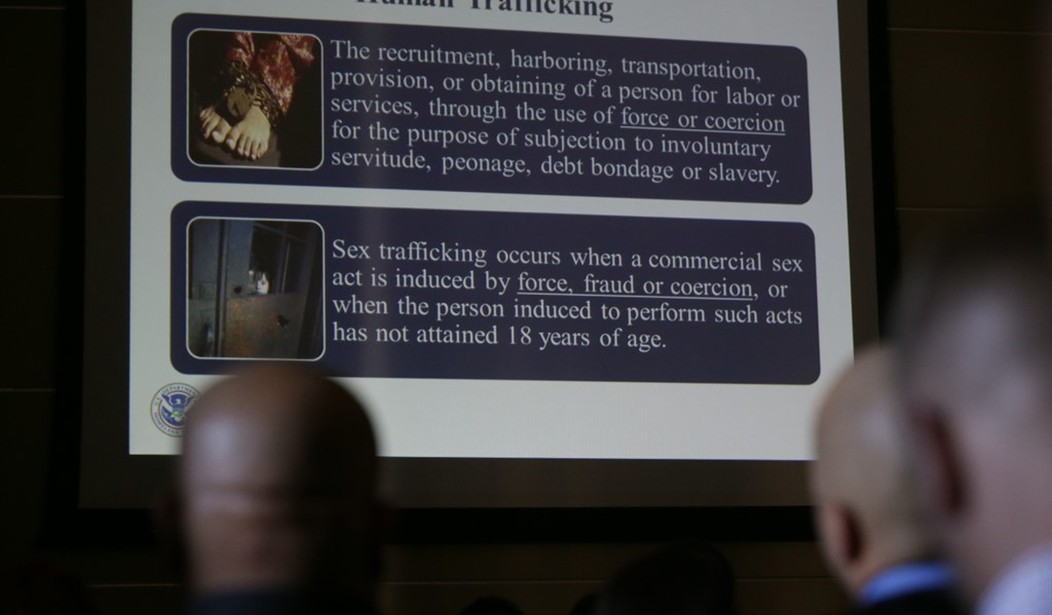According to the World Population Review, approximately 190,000 incidents of human trafficking occur in the United States every year. In 2020 alone, the Human Trafficking Hotline received 51,667 tips regarding people who were being exploited.
Iowa resident Pieper Lewis 17 was when she became a victim of trafficking. Fox News notes that Lewis ran away from home at age 15, fleeing an abusive mother. She was taken in by a man named Christopher Brown, who trafficked her for sex. After being raped multiple times by Zachary Brooks, Lewis decided that she had had enough. One night, she woke up to Brooks raping her yet again. She took a knife from the nightstand and stabbed Brooks 30 times after he fell asleep. Lewis plead guilty to willful injury and manslaughter in June. Prosecutors said that they believed that Lewis had been victimized, but since Brooks was asleep when the incident occurred, he posed no immediate threat.
On Tuesday, Judge David Porter delayed the two potential 10-year prison terms and gave Lewis five years’ probation. She is headed to a halfway house, must wear an ankle monitor, and complete 200 hours of community service.
She must also pay the victim’s family $150,000 in restitution to Brooks’ family. Porter said that Iowa law gave him no other option.
I sincerely hope Brooks’ family rejects the money or donates it to a group that combats human trafficking. Or any worthy charity for that matter. I hope that they realize that the money is tainted, not by Lewis’ actions but by Brooks.
Human trafficking does more than take a physical toll on the body. The people I have met who have escaped trafficking dealt with years of mental and emotional problems, and many have struggled to resume a normal life. Being trafficked is a never-ending series of severe traumas, occurring one after the other. And when pornography is involved, the pictures or videos are always out there somewhere and forever on the victim’s mind.
Pieper Lewis had nowhere to go and no one she could trust. Trafficking is a far greater problem than many people think and closer than they know. There were people around Lewis who knew or encountered her and had no idea what was happening. The National Center for Missing and Exploited Children has a page that can tell you more about child sex trafficking and a list of indicators to look for:
- Signs of sexual or physical abuse
- Symptoms of neglect such as malnourishment
- Unaddressed or chronic medical/dental issues or STIs
- Close association with an overly controlling adult
- Recovered at hotels, street tracks, strip clubs, or other locations where commercial sex is known to occur
- Has a secret cell phone or apps providing multiple cellphone numbers
- In possession of material items inconsistent with the child’s access to money or socioeconomic status
- Living out of suitcases, motels, in a car, or other evidence of housing insecurity
- In possession of bulk sexual paraphernalia such as condoms or lubricant
- Unexplained access to large amounts of cash, pre-paid cards, or hotel keys
- Tattoos or other branding, such as those indicating money or matching other known trafficking victims, or that the child is reluctant to explain
- References traveling to other cities or states while missing, or while their whereabouts were unknown
- Drug abuse or frequent use of “party drugs” such as GHB, Rohypnol, Ketamine, MDMA (Ecstasy), or Methamphetamines
- Chronically runs away from home (especially 3+ missing incidents)
- Unexplained absences from school
- Constantly sleeps during class
- Stops engaging in activities they previously enjoyed
- Abruptly disconnects from family and friends
- Significant changes in behavior, including their online activity
- Appears overly frightened, annoyed, resistant, or belligerent toward authority figures
- Avoids answering questions or lets others speak for them
- Lies about age and identity or has a secret online profile
- Uses language or emojis often associated with commercial sex such as “trick”, “the life”, or “the game”
- References online escort ads or dating websites/apps
You can leave an anonymous tip here.










Join the conversation as a VIP Member